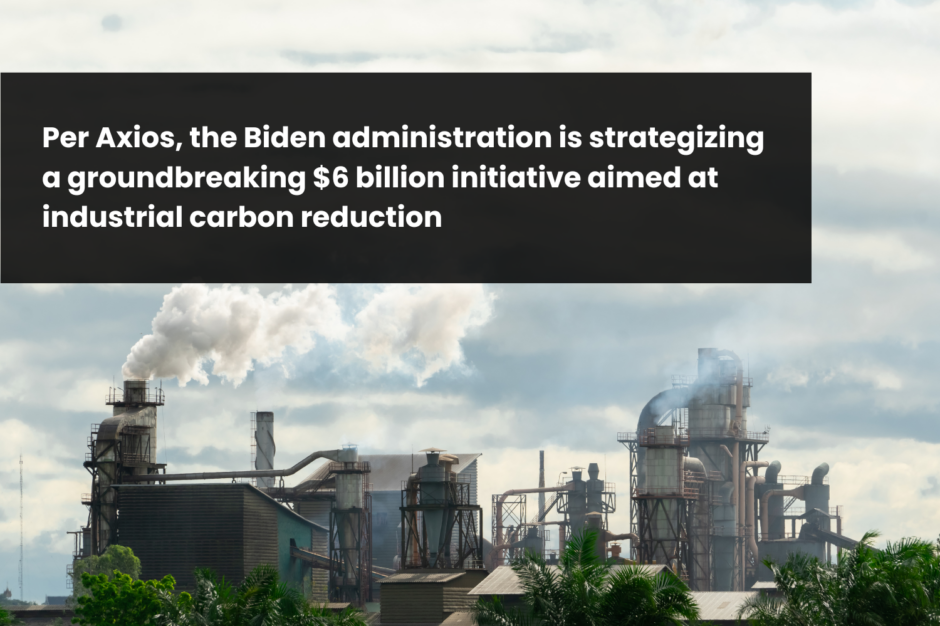Per Axios, the Biden administration is strategizing a groundbreaking $6 billion initiative aimed at industrial carbon reduction
CREtech

Thanks for keeping up with the CREtech Community in the News! For more news about members of the CREtech Community, follow us on Linkedin.
The Energy Department is preparing to allocate up to $6 billion across 33 projects targeting the reduction of carbon dioxide emissions from heavy industries such as metals, chemicals, and cement production. This initiative, described as the "single largest industrial decarbonization investment in American history" by DOE head Jennifer Granholm, aims to address a significant portion of U.S. CO2 emissions stemming from industrial processes.
The projects, funded primarily through the Democrats' 2022 climate legislation with additional support from the 2021 bipartisan infrastructure law, are expected to yield annual emissions reductions equivalent to the carbon output of 3 million gasoline-powered cars. With a federal cost-share arrangement involving companies, the total investment is estimated to exceed $20 billion.
The announcement highlights efforts to prioritize union labor and address environmental justice concerns, aligning with key Democratic policy objectives. Tackling emissions from heavy industries presents unique challenges due to their substantial energy requirements and high heat demands. However, examples of proposed projects include transitioning aluminum production to cleaner fuels, implementing carbon capture and storage systems in cement plants, and reducing process heat emissions through electrification technologies.
While these projects represent initial decisions pending further grant negotiations, officials anticipate that successful implementation will encourage broader adoption of clean technologies across these industries, both domestically and internationally. Granholm emphasizes the replicability and scalability of the solutions being funded, aiming for a significant impact on industrial emissions reduction efforts moving forward.
Original article posted on March 25, 2024

